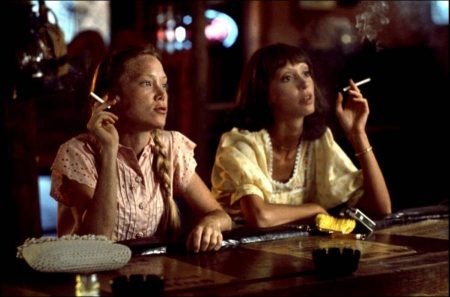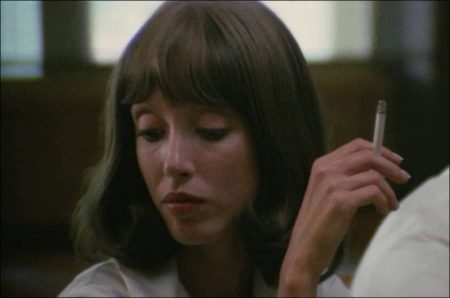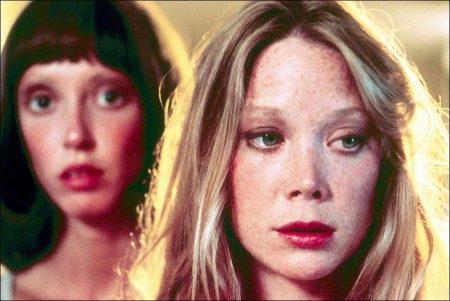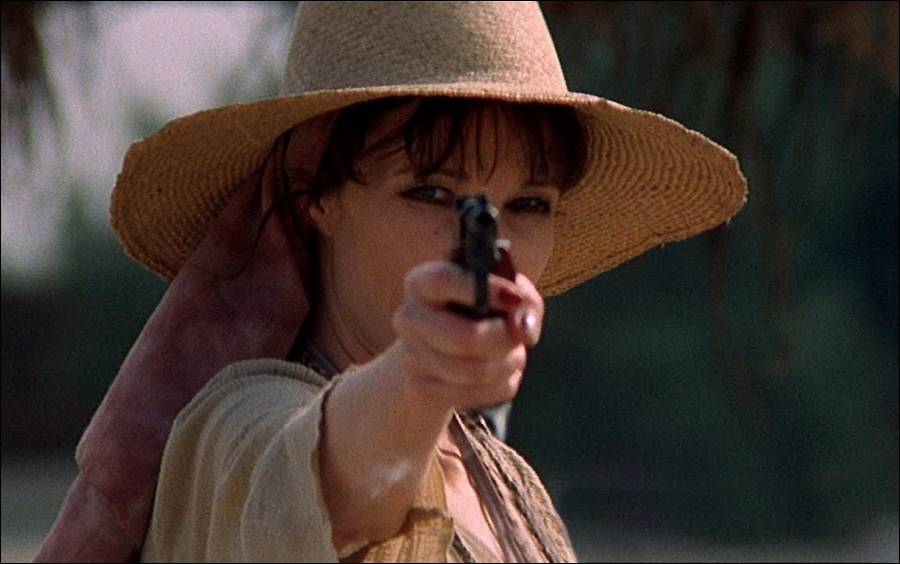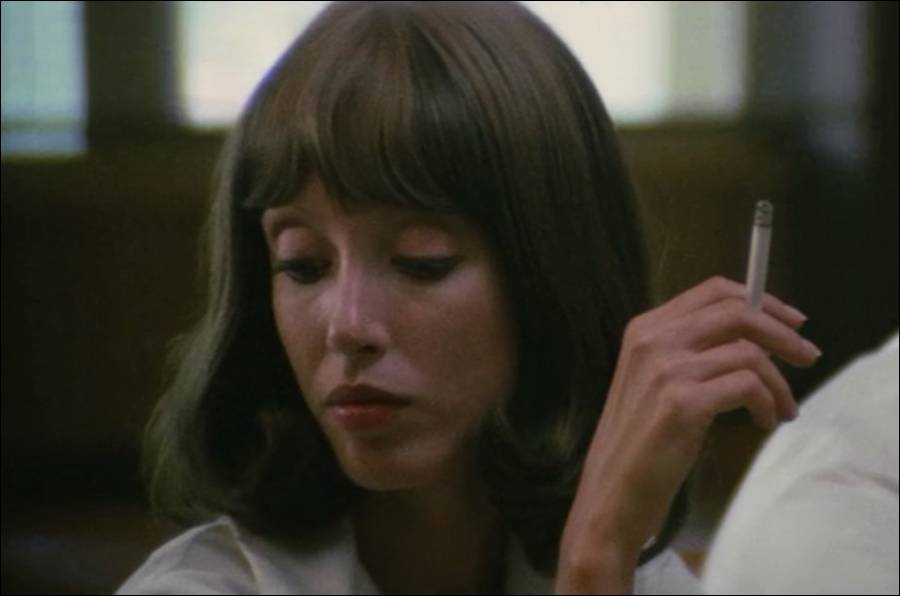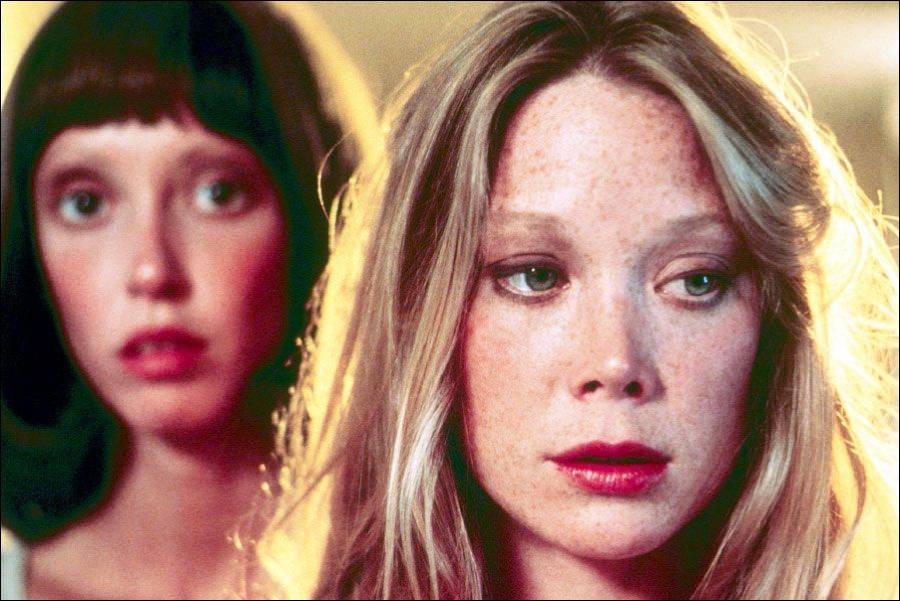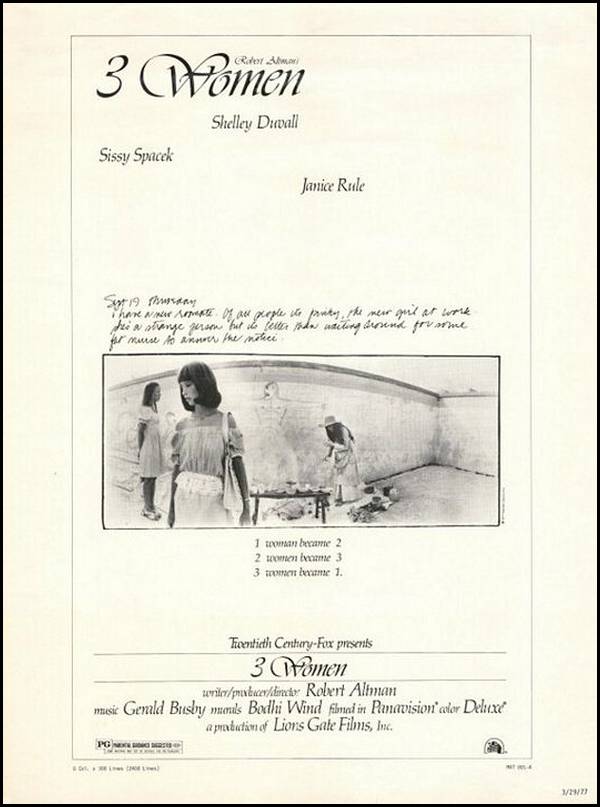3 Women movie storyline. In a Southern California desert community, Millie Lammoreaux, a physical therapist at a seniors rehab center, is a self-absorbed young woman who believes she is the center of the social life of those around her, especially when it comes to men, whether those situations be at work, at home in her apartment complex or at her favorite hangout, Dodge City, a western styled bar, while, without either realizing it or not really caring, she is emotionally on the outside looking in, with many talking negatively about her behind her back.
The one person who does believe Millie is truly perfect is Pinky Rose, a childlike and emotionally needy young woman who also gets a job as a physical therapist at the same rehab facility, this Pinky’s first ever real job, and the first since she moved to California from small town Texas. So after Millie’s roommate Deidre moves out of their one bedroom apartment, Pinky does whatever she needs to ensure she fills Deidre’s old spot, despite she not needing to move from her own accommodation. This stint as roommates truly does begin the two women’s unusual relationship, where one fills the need of the other, not always in positive ways.
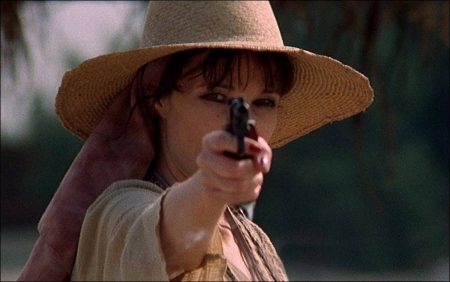
The last in the titular triumvirate is currently pregnant Willie Hart, co-owner along with her ex-western stuntman husband Edgar Hart of both the apartment complex and Dodge City, a largely silent woman who paints, her mural canvasses largely the sides and bottoms of swimming pools. While first Millie and then Pinky has a more outward bond with Edgar, again largely in less than positive ways in often drunken Edgar’s bluster, they may truly need Willie to fill the void not inherent in either of their beings.
3 Women is a 1977 American avant-garde drama film written, produced, and directed by Robert Altman and starring Shelley Duvall, Sissy Spacek and Janice Rule. It depicts the increasingly bizarre, mysterious relationship between a woman (Duvall) and her roommate and co-worker (Spacek) in a dusty, underpopulated Californian desert town.
The story came directly from a dream Altman had, which he adapted into a treatment, intending to film without a screenplay. 20th Century Fox financed the project on the basis of Altman’s past work, and a screenplay was completed before filming.
3 Women premiered at the 1977 Cannes Film Festival, where it competed for the Palme d’Or and Duvall received the Best Actress Award. It received widespread critical acclaim. Interpretation of the film has involved use of psychoanalysis and discussion of identity. It was not a strong box office success despite Hollywood studio financing and distribution. After its theatrical release, the film was unavailable on home video for almost thirty years, until it was released by The Criterion Collection in 2004.
The film opened in New York City in April 1977. The film was also screened at the Cannes Film Festival in May 1977, which was where Altman first admitted to Ladd the film was based on his dream. On home video, the film never had a VHS release, and Altman said the film negative was beginning to deteriorate until it was repaired and remastered. However, The Criterion Collection released the film on DVD in 2004, with a director’s commentary. Criterion re-released the film on Blu-ray in 2011.
Filming, Themes and Interpretations
The film was shot in Palm Springs, including the apartment scenes, and Desert Hot Springs, California. Although a screenplay was completed, actresses Duvall and Spacek employed much improvisation, particularly in Duvall’s silly ramblings and advice on dating. Altman also credited Duvall with drawing up her character’s recipes and diary. For Willie’s paintings, the filmmakers employed artist Bodhi Wind, whose real name was Charles Kuklis. The cinematographer, Chuck Roscher, worked with the intense sunlight in the Californian desert.
In one scene, Duvall’s character’s skirt gets caught in a car door. This initially happened accidentally in one take, after which assistant director Tommy Thompson called for a cut. However, Altman stated he “loved” the accident, and shot more takes repeating it.
Altman has said the film is about “empty vessels in an empty landscape”. Psychiatrist Glen O. Gabbard and Krin Gabbard believed 3 Women could best be understood through psychoanalysis and the study of dreams. In theory, a person dreaming can shift from one character into another within the dream. The three titular characters in the film represent the psyche of one person.
Whereas Pinky is the child among the three, Millie is the sexually awakened young woman and the pregnant Willie is the mother figure. The Gabbard siblings interpreted Pinky, post-coma, as transforming into Millie, while Millie became more of a mother figure to her. Altman equated the death of Willie’s child to the murder of Edgar, which the three title characters appear to all have participated in.
Author David Greven agreed psychoanalysis could be used, but saw the relationship between Millie and Pinky as one of mother and daughter, respectively, with Willie at the end of the film being the “grandmotherly figure” who defends Pinky from Millie’s scornful mothering. Greven wrote the film also demonstrated a focus on strong female characters.
Writer Frank Caso identified themes of the film as including obsession, schizophrenia and personality disorder, and linked the film to Altman’s earlier films That Cold Day in the Park (1969) and Images (1972), declaring them a trilogy. Caso states critics have argued the dreamer in the film is Willie, since she says she had a dream at the end of the film, and Pinky had the “dream within a dream”. The setting is also a key feature in the film, with Joe McElhaney arguing the California landscapes “come to represent something much larger than a ‘mere’ location”. He states it is “a space of death but also one of creation”.
3 Women (1977)
Directed by: Robert Altman
Starring: Shelley Duvall, Sissy Spacek, Janice Rule, Ruth Nelson, John Cromwell, Sierra Pecheur, Craig Richard Nelson, Belita Moreno, Leslie Ann Hudson, Patricia Ann Hudson
Screenplay by: Robert Altman
Production Design by: William A. Sawyer
Cinematography by: Chuck Roscher
Film Editing by: Dennis Hill
Set Decoration by: Shelley Duvall
Art Direction by: James Dowell Vance
Makeup Department: Kaye Pownall, Monty Westmore
Music by: Gerald Busby
MPAA Rating: None.
Distributed by: 20th Century Fox
Release Date: April 3, 1977 (New York City), April 29, 1977 (Los Angeles)
Views: 226
